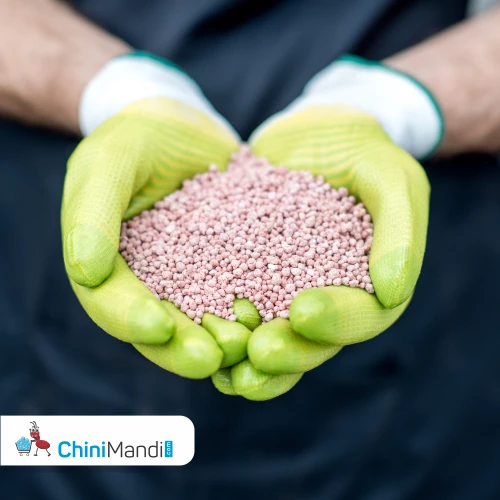New Delhi [India], November 04 (ANI): The Union Cabinet on Wednesday approved a subsidy of Rs 51,875 crore for phosphatic and potassic fertilisers for the Rabi season 2022-23 and the government will provide the highest-ever subsidy this year, Union Minister for Chemicals and Fertilizers Mansukh Mandaviya said on Wednesday.
The minister told ANI that the initial subsidy for Rabi season for 2022-23 in budget was Rs 21,000 crore for DAP and Rs 33,500 crore for urea but today the union cabinet increased subsidy for Rabi season for DAP (it) is Rs 51,875 crore and Rs 87,000 crore for urea… approved in cabinet meeting to reduce the burden of farmers despite increase in fertilizer cost in the International and domestic market,” Mandaviya said.
“The Rabi season subsidy in 2022-23 is Rs 1,38, 875 crore and the subsidy amount for this year is 2.25 lakh crore which is the highest ever amount for one year. The earlier highest subsidy was Rs 1.62 lakh crore,” he added.
The minister said efforts have been made to ensure smooth availability of fertilizers at affordable rates.
The international prices of fertilizers, raw materials of DAP and other P&K fertilizers have increased sharply but the government has subsumed the rise by increasing the subsidy to ensure timely availability of fertilizers at affordable prices and protect farmers, the minister said.
“Besides, high International prices, there has been tight availability globally. The two prime sources, China (40-45 per cent) and Morocco couldn’t supply the desired quantities. The government’s interventions remained unprecedented and historic and it activated alternate
sources like Saudi Arabia, and Russia (from annual 3 LMT, 13 LMT phosphates were imported),” Mandaviya said.
The minister told ANI that due to dependence on raw materials and intermediates in the phosphatic and potassic sector, the Indian fertilizer companies have to depend on key international suppliers in countries such as Morocco, Jordan, Saudi Arabia, Canada and Senegal.
He said despite India’s heavy reliance on imports, the Centre has made every effort to break the price cartels in the Phosphatic and Potassic fertilizers and the leading fertilizer companies have been advised from time to time to ensure the best negotiation on the benchmark price quoted by global suppliers of key raw materials.
” There was a clear message to global suppliers that India would not accept any cartelization. The prices of fertilizers or raw materials should be economics-driven, not human behaviour driven,” he added.
Mandaviya said the government has taken the initiative to facilitate several long-term agreements between Indian companies and suppliers from other countries to ensure the availability of fertilizers at competitive prices.
The minister said to insulate the Indian fertilizers market from the vagaries of the international market and to ensure assured nutrient supply for Indian agriculture, almost 50 per cent of total yearly imports of P&K finished fertilizers (30%) and raw materials/intermediate (20%) have been tied up by facilitating long term agreements with Jordan ( 37 LMT), Saudi Arabia (25 LMT), Russia (17 LMT), Canada,- 15 LMT (Potash) and Israel 12.5 LMT (Potash).
Besides the government is also facilitating Indian fertilizer companies to invest abroad in fertilizer manufacturing facilities.
Efforts have also been made to expedite the exploration and utilization of indigenously available fertilizer mineral resources in consultation with the state governments of Rajasthan, Madhya Pradesh and Uttar Pradesh.
Guidelines were rationalized and consolidated on September 21, 2022, to ensure the availability of quality raw materials.
The government has also advised the PandK fertilizer companies to refrain from exports of rawmaterials and fertilizers without seeking appropriate approval in view of the rising international prices, so as to ensure domestic availability.
The government is scaling up commercial production of nano urea as an alternative to the conventional urea.
Thirty lakh bottles of nano urea have been included in the supply plan of October 2022 by the Department of Fertilizers. (ANI)












